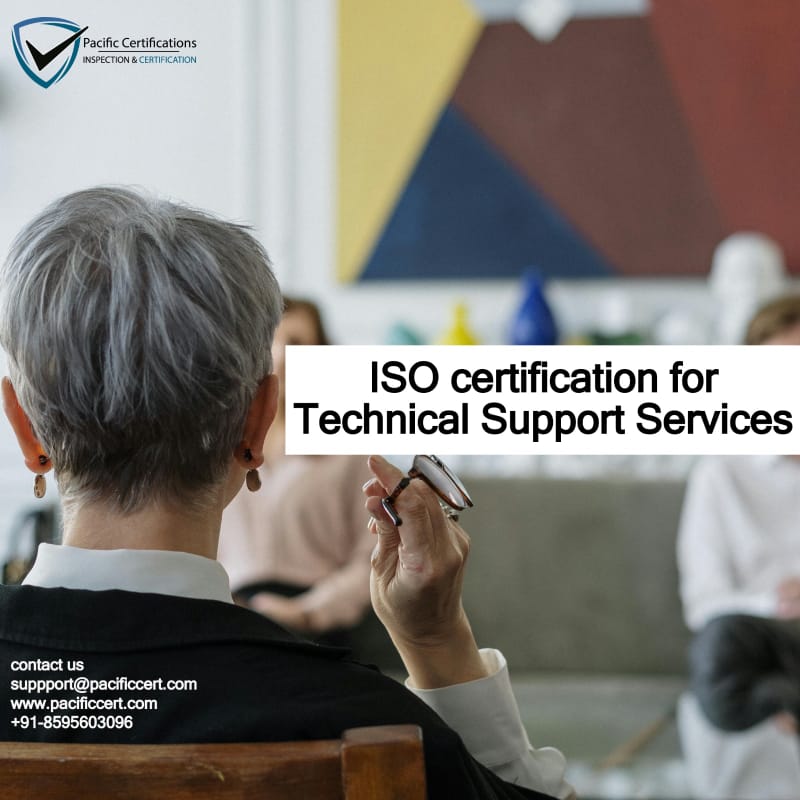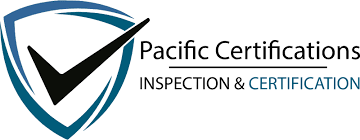ISO Certifications for Technical Support Services, Requirements and Benefits

Introduction
Technical support services are vital for industries ranging from IT and telecom to consumer electronics, software, and manufacturing. As customer expectations rise and service delivery becomes more complex, organizations face pressure to ensure quality, protect data, and manage risks effectively. ISO certifications provide a structured way for technical support providers to standardize their processes, ensure compliance with regulations, and deliver consistent value to customers.
Technical support is becoming a centerpiece of business operations rather than a side service. At present the global technical support services market is estimated at around USD 73.1 billion, growing at a compound annual rate of 5.3 % from 2025 to 2035. As digital transformation accelerates, especially with remote work, IoT, and SaaS adoption organizations face rising pressures to deliver fast, secure, and consistent support to customers and internal users alike. In this environment, ISO certifications help technical support providers establish structured processes, assure data protection, and maintain continuity under changing conditions.
In today’s service-driven economy, customer trust depends on fast responses as well as on the systems that ensure accuracy and reliability in every interaction.
ISO certifications ensure that the company complies to internationally recognized standards for quality management and other critical operational areas.
To start your certification process, contact us at [email protected].
Applicable ISO standards for Technical Support Services
Below are the common standards applicable to technical support services:
ISO 9001: Quality Management Systems (QMS)
ISO 9001 is the most widely recognized ISO standard. It focuses on establishing a quality management system that can help ensure that technical support services are delivered consistently and to a high quality, with processes in place for continuous improvement.
ISO/IEC 27001: Information Security Management Systems (ISMS)
ISO/IEC 27001 specifies the requirements for establishing, implementing, maintaining, and continually improving an information security management system within the context of the organization.
ISO 20000-1: Service Management System (SMS)
ISO 20000-1 specifies requirements for an organization to establish, implement, maintain, and continually improve a service management system. It focuses on the effective delivery of services to the business and its customers.
ISO 22301: Business Continuity Management Systems (BCMS)
ISO 22301 specifies requirements to plan, establish, implement, operate, monitor, review, maintain, and continually improve a documented management system to protect against, reduce the likelihood of occurrence, prepare for, respond to, and recover from disruptive incidents when they arise.
ISO 45001: Occupational Health and Safety Management Systems
ISO 45001 specifies requirements for an occupational health and safety (OH&S) management system, to enable an organization to proactively improve its OH&S performance in preventing injury and ill-health.
Click here to find out more applicable standards to your industry
What are the requirements of ISO Certifications for Technical Support Providers?
Organizations providing technical support must establish documented systems for quality, security, and continuity, supported by training, monitoring, and regular reviews. Below are the key requirements:
ISO 9001: Quality Management Systems (QMS) Requirements
Establish a QMS: Develop, document, and implement a quality management system based on the company’s processes and customer requirements.
Leadership Commitment: Top management must demonstrate leadership and commitment to the QMS, ensuring customer focus and setting quality objectives.
Risk Management: Identify, assess, and address risks and opportunities that can affect product/service conformity.
Continuous Improvement: The company must continually improve its QMS to enhance overall performance.
ISO/IEC 27001: Information Security Management Systems (ISMS) Requirements
Information Security Policies: Develop and implement security policies tailored to the organization's needs.
Risk Assessment: Perform risk assessments to identify threats and vulnerabilities to information security.
Security Controls: Implement appropriate security controls to mitigate identified risks.
Training and Awareness: Ensure employees are trained and aware of their roles in maintaining information security.
ISO 20000-1: Service Management System (SMS) Requirements
Service Management System: Implement and maintain a service management system that meets the requirements of ISO 20000-1.
Service Design and Transition: Ensure new or changed services are designed and transitioned into live operations while meeting agreed-upon requirements.
Service Delivery Processes: Establish and manage processes required for the effective delivery of services.
Continuous Improvement: Continually improve the service management system and services.
Tip: Start with ISO 9001 and ISO/IEC 20000-1 for service quality, and then integrate ISO/IEC 27001 and ISO 22301 to address information security and service continuity.
Obtaining ISO certification requires a commitment to meeting the stringent standards set out by the ISO organization. However, the benefits of achieving certification are significant, offering operational, strategic, and market advantages, contact [email protected] for more information!
What are the benefits of ISO Certifications for Technical Support Services?
Certification helps technical support providers improve service quality, protect data, and increase trust, while ensuring compliance and efficiency.
Consistent service quality through standardized processes and regular monitoring.
Stronger data protection and customer confidence by aligning with international security standards.
Improved customer satisfaction with effective complaint handling and feedback systems.
Enhanced reliability and resilience of support services during disruptions or cyber incidents.
Greater competitiveness in securing contracts where ISO certification is required or preferred.
Reduced service downtime and faster resolution times through structured management systems.
Safer workplaces and improved employee morale through health and safety management practices.
A culture of continual improvement that adapts services to changing technologies and customer needs.
The technical support services market is expanding steadily. Forecasts suggest it will grow from USD 73.1 billion to USD 122.5 billion by 2035, reflecting sustained demand across industries such as IT, telecommunications, and cloud services.
Key drivers include the proliferation of connected devices, increasing reliance on digital platforms, and the complexity of hybrid IT landscapes. Outsourcing continues to rise: the technical support outsourcing market, valued at USD 54.07 billion in 2024, is expected to grow to USD 57.76 billion in 2025, with further expansion to nearly USD 97.91 billion by 2033 - Straits Research. As support becomes more mission-critical, clients demand providers with robust security, consistent performance, and business continuity assurance.
Companies in the Technical Support Services sector can leverage these certifications to not only improve their internal operations but also to demonstrate their commitment to quality and security to clients, thus enhancing their reputation and business prospects.
Contact us
If you need more support with ISO certifications for Technical Support Services, contact us at [email protected] or +91-8595603096.
Author: Alina Ansari
Read More at: Blogs by Pacific Certifications

